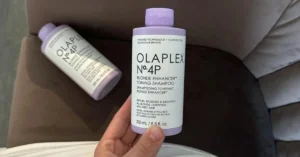How Long Does It Take for Skincare to Produce Visible Effects? One common inquiry among skincare enthusiasts is, “How long does it take for skincare products to become effective?” The answer to this question isn’t simple and varies depending on factors like individual skin type, age, and any current skin conditions. Additionally, the particular skincare product being used affects how long it will take to see noticeable results.
In this article, we will explore the factors that affect skincare effectiveness and provide a timeline for seeing results.
We will also discuss the importance of consulting with a skincare professional in order to get personalized recommendations and address any underlying skin concerns.
Table of Contents
How Long Does it Take for Skincare to Work?
Factors that affect skincare effectiveness
- Consistency: Consistency is key when it comes to skincare. Products need to be used as directed in order to see the best results. Consistently using the same products and following a routine will help your skin to adjust and see the benefits.
- Skin type: Everyone’s skin is unique, and certain products may work better for some people than others. Factors such as skin type (oily, dry, sensitive, etc.), condition (acne, eczema, rosacea, etc.), and age can all affect how products work on the skin.
- Ingredients: The ingredients in skincare products can also play a role in determining effectiveness. Some ingredients, such as retinoids and alpha hydroxy acids, have been proven to be effective in improving the appearance of the skin, while others may not have the same level of effectiveness.
- Lifestyle factors: A person’s lifestyle can also affect the effectiveness of skincare products. For example, sun exposure, smoking, and diet can all have an impact on the health of the skin, and should be taken into consideration when evaluating skincare results.
- Use of other products: Using multiple products at the same time can affect how each product works on the skin. It’s important to consider the compatibility of different products in order to achieve the best results.
- Underlying skin conditions: Some skin conditions such as eczema, psoriasis, rosacea, and acne can affect how skincare products work on the skin. It’s important to consult with a skincare professional to address underlying skin concerns before using skincare products.
How long does it take to see results from skincare?

- Cleansers: Cleansers are typically the first step in a skincare routine and results can be seen immediately. Cleansers can help to remove impurities and makeup, leaving the skin feeling clean and refreshed.
- Moisturizers: Moisturizers are designed to hydrate and nourish the skin, and results can typically be seen within 1-2 weeks of consistent use. Moisturizers can help to improve the appearance of dry, dull, or dehydrated skin.
- Acne treatments: Acne treatments, such as topical creams, gels, and serums, can take up to 4-8 weeks to show results. Acne treatments are designed to target specific causes of acne such as bacteria, inflammation, and excess oil production.
- Anti-aging products: Anti-aging products, such as retinoids and antioxidants, can take anywhere from 3-12 months to show significant results. These products are designed to improve the appearance of fine lines, wrinkles, and age spots, but it may take a long time to see a visible change.
- Sunscreen: Sunscreen is a daily essential to protect the skin from harmful UV rays. It works immediately after application, but its benefits can be seen over time when it prevents the skin from premature aging and pigmentation.
Importance of consulting with a skincare professional
Consulting with a skincare professional can be beneficial for several reasons:
- Personalized recommendations: Skincare professionals can help to determine an individual’s specific skincare needs and make personalized product recommendations based on their skin type and concerns.
- Identification of underlying skin conditions: They also can help to identify underlying skin conditions that may be affecting the effectiveness of skincare products. They can also provide guidance on how to best address these conditions.
- Professional treatments: Skincare professionals can also provide professional treatments such as facials, chemical peels, and microdermabrasion that can help to improve the appearance of the skin.
- Professional advice: Skincare professionals can provide advice on how to properly use skincare products, as well as guidance on how to create an effective skincare routine. They can also provide guidance on how to best address specific skin concerns such as acne, rosacea, and aging skin.
- Follow-up: Skincare professionals can also provide follow-up care to ensure that the products and treatments recommended are working well and make any necessary adjustments.
FAQ:
How long does it take to improve face skin?

The timeline for improving the appearance of facial skin can vary depending on a number of factors, including an individual’s skincare routine, overall health, and underlying skin conditions.
Here is a general overview of how long it can take to see improvement in different areas of facial skin:
- Acne: Acne treatments, such as topical creams, gels, and serums, can take up to 4-8 weeks to show results. In some cases, it can take longer, up to 12 weeks, to see significant improvement.
- Fine lines and wrinkles: Anti-aging products, such as retinoids and antioxidants, can take anywhere from 3-12 months to show significant results in improving the appearance of fine lines and wrinkles.
- Pigmentation: Products that target pigmentation, such as hydroquinone, kojic acid, and vitamin C, can take a few weeks to a few months to show results. It’s important to use sunscreen to prevent further pigmentation.
- Brightening: Brightening products such as vitamin C, glycolic acid, and kojic acid can take anywhere from a few days to a few weeks to show results in brightening the skin.
- Hydration: Moisturizers can help to hydrate and nourish the skin, and results can typically be seen within 1-2 weeks of consistent use.
How do you know if skincare is working?
There are several ways to determine if skincare is working for you. One way is to look for improvement in your skin’s appearance, such as a reduction in the appearance of wrinkles, dark spots, or acne. Another way is to pay attention to how your skin feels, such as if it feels more hydrated or less oily.
Additionally, you can also track your progress by taking photos of your skin at regular intervals and comparing them. Consultation with dermatologist could also be helpful.
How long does it take for your skin to get used to a skincare routine?

The length of time it takes for skin to get used to a skincare routine can vary depending on a number of factors such as the individual’s skin type and the products being used.
In general, it can take anywhere from a few days to a few weeks for the skin to adjust to a new skincare routine. The skin may go through a period of adjustment, known as a “purging phase,” where it can become temporarily worse before it gets better. This is because the new products are working to remove impurities and dead skin cells that have been clogging the pores.
It’s important to be patient and consistent with your skincare routine, as it may take some time for the full benefits to be seen. It’s also important to pay attention to your skin’s reaction to the products, and adjust or switch products as needed if your skin becomes irritated or sensitive.
It’s also important to remember that the skin’s needs can change over time, so it’s a good idea to re-evaluate your skincare routine every few months and make adjustments as needed. Consult with a skincare professional for personalized advice and to address any underlying skin concerns.
Is it OK to do skincare everyday?
It’s generally safe to use most skincare products every day as directed. However, it is important to pay attention to your skin’s reactions to the products and adjust your routine as needed.
Cleansers, moisturizers, and sunscreen are typically products that can be used daily. Cleansers help to remove impurities and makeup, moisturizers help to hydrate and nourish the skin, and sunscreen helps to protect the skin from harmful UV rays.
However, other products such as exfoliants, acids, and retinoids may be more potent, and should be used as directed and not every day. These products can be very beneficial but can also be irritating if overused. It is recommended to start using them every other day or every few days and see how your skin reacts.
Additionally, it’s important to pay attention to your skin’s needs, as they can change over time. For example, if your skin becomes dry or sensitive, you may need to use products less frequently, or switch to more gentle products.
Is 30 too late to start a skincare routine?
No, it is not too late to start a skincare routine at age 30. In fact, starting a skincare routine at any age can be beneficial for the health and appearance of the skin.
As we age, our skin’s needs change, and a skincare routine can help to address these changes. A skincare routine can help to prevent and reduce the appearance of fine lines and wrinkles, improve hydration, and even out skin tone.
It’s important to remember that skincare results can take time to appear, but consistency is key. It’s also important to pay attention to your skin’s needs and make adjustments to your routine as needed.
If you liked this blog article about the question: how long does it take for skincare to work?, don’t forget to leave us a comment down below to tell us about your experience with your skincare routine.





